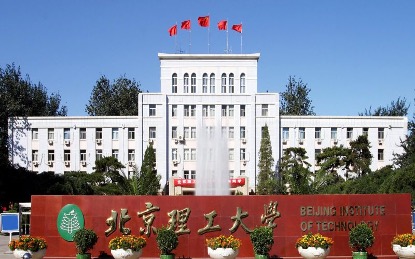Title:
Intelligent Wireless Communication in Air-Space-Ground Integrated Systems
Date:
January 30th, 2026 (UTC +8)
Organizer:
Institute of Aerospace Information Networks, Beijing Institute of Technology
Symposium Chair:

Dr. Ziyi Yang
Personal Bio:
Dr. Ziyi Yang is a special associate research fellow and associate professor of the school of Cyberspace Science and Technology at the Beijing Institute of Technology. Her primary research interests include wireless communications, satellite communications, covert communication, reconfigurable intelligence surface, and optimization. She has published more than 10 academic papers in peer-reviewed journals. She is also a master's and international student tutor at the Beijing Institute of Technology, a reviewer of top journals, a senior member of the Communication Society, and senior member of IEEE.
Call for papers:
Background:
With the rapid evolution of integrated air, space, and ground networks, the demand for intelligent, efficient, and secure wireless communication systems has grown exponentially across diverse domains. Key technological paradigms such as satellite-terrestrial integration, unmanned aerial vehicle (UAV) communication networks, and intelligent signal processing algorithms are reshaping the landscape of global connectivity. These advancements increasingly depend on artificial intelligence (AI) and optimization techniques to address complex real-world challenges, including dynamic channel conditions, seamless coverage, and robust security. The integration of intelligent communication within air-space-ground systems represents a pivotal area of innovation, necessitating interdisciplinary research and collaborative efforts. This symposium aims to explore cutting-edge developments and challenges in wireless communication within air-space-ground integrated systems, fostering exchanges on breakthroughs in system design, signal processing, and security frameworks to drive its theoretical and practical advancement.
Goal/Rationale:
The advancement of wireless communication in air-space-ground integrated systems presents a series of critical technical and practical challenges. These challenges include efficient spectrum resource allocation across heterogeneous domains, ensuring stable signal transmission under dynamic atmospheric and space-borne channel conditions, and enhancing security protection against cross-layer threats in multi-domain networks. Meanwhile, key application scenarios such as air-space communication, satellite-terrestrial links, air-ground interaction encompassing communication between unmanned aerial vehicles and ground systems, and full-domain air-space-ground integrated collaboration are creating unique opportunities for technological innovation. However, designing and optimizing such integrated systems requires the integration of adaptive transmission algorithms, cross-domain communication security analysis models, and heterogeneous network synergy mechanisms. This symposium aims to address these challenges by facilitating in-depth discussions on recent breakthroughs in integrated system architecture design, multi-scenario communication security analysis, and dynamic resource optimization strategies. By bringing together experts from academia and research institutions, this symposium seeks to advance the theoretical foundation and practical implementation of wireless communication in air-space-ground integrated systems.
Scope and Information for Participants:
This symposium invites contributions that explore innovative ideas, practical solutions, and theoretical advancements in wireless communication in air space ground integrated system. Key topics include but are not limited to:
- UAV and satellite communication networks
- Secure and privacy-preserving communication protocols
- AI and optimization in wireless networks
- 6G and beyond: architecture and performance challenges
- Edge and fog computing for wireless systems
- Spectrum and energy-efficient communication strategies
- Physical-layer security and encryption methods
- Communication system modeling methods
- Interference management and cooperative transmission
- Complex channel modeling and characteristic analysis
- Reliable transmission and latency optimization techniques
- Routing and resource scheduling in dynamically changing topologies
- Energy harvesting and energy-saving transmission technologies
- Application and verification of millimeter wave/terahertz technologies
- Integration of communication and sensing
- Simulation platform construction and performance evaluation methods
Topics:
The main topics of this symposium are listed below.
Computing Innovations
- Artificial Intelligence
- Cluster Computing
- Design and Analysis of Algorithms
- Machine Learning
- Mobile Computing
- Scientific Computing
- Scientific Visualization
- Web and Grid based Simulation and Computing
- Advanced Numerical Algorithms
- Deep Learning
- Image Processing
- Robotics and Automation Sciences
- Sensors and Sensor Networks
- The Internet of Things
- Semiconductors
Meanwhile, submissions aligned with the overall conference theme are also welcome.
Applied Physics
- Accelerator Physics
- Accelerator Research and Development
- Acoustics, Noise and Vibration
- Applications of Particle Trapping
- Biophysics, Medical Physics
- Detectors and Data Handling
- Engineering Physics
- Instrumentation and Control Components
- Magnetic Devices and Materials
- Structural Mechanics and Structural Engineering
- Materials Physics
- Mechanics, Rheology and Tribology
- Nano and Metamaterials
- Neuromorphic Computing
- Nuclear Physics
- Quantum Chromodynamics and Quantum Computers
- Spin Dynamics
- Statistical Mechanics
- Stealth Technology
- Storage Ring Physics
- Systems and Automation Thermodynamics
Theoretical Physics
- Astrophysics
- Atomic, Molecular and Optical Physics
- Black Hole Thermodynamics
- Condensed Matter Physics
- Conservation of Energy
- Dark Energy and Matter
- Electromagnetism and Field Theory
- Gamma-ray Emission in the Universe
- General Relativity
- Gravitational Waves
- Hadron Structure, Spectroscopy and Dynamics
- High Energy Physics
- Non-perturbative Field Theory
- Optical Model
- Particle Physics
- Physical Cosmology
- Precision Spectroscopy and Frequency Standards
- Soft Matter Physics
- Solid Mechanics and Special Relativity
- Theory of Astronomical Navigation
- Theory of Astronomical Time Keeping
Mathematics and Applied Mathematics
- Applied Partial Differential Equations
- Integral Equations
- Numerical Analysis
- Probability Theory
- Mathematical Methods
- Nonlinear Problems in Mechanics
- Game Theory
- Control Theory
- Image Processing
- Cryptography
- Fluid Dynamics
- Fuzzy Mathematics and Its Applications
- Algebra and Its Application
- Geometry
- Optimization and Operational Research
- Statistics
- Stochastic Processes
- Baysian Inference
- Regression Analysis Estimation Theory
- Econometrics
- Sampling Theory
- Planning and Scheduling
- Discrete Applied Mathematics
- Algorithms
- Neural Networks
Submission:
Prospective authors are kindly invited to submit full papers that include title, abstract, introduction, tables, figures, conclusion and references. It is unnecessary to submit an abstract in advance. Please submit your papers in English.
Each paper should be no less than 4 pages. One regular registration can cover a paper of 6 pages, and additional pages will be charged. Please format your paper well according to the conference template before submission. Paper Template Download
Please prepare your paper in both .doc/.docx and .pdf format and submit your full paper by email with both formats attached directly to sympo_beijing@confciap.org
Important Dates:
| Process | Date & Time |
|---|---|
| Submission Deadline | February 14, 2026 |
| Symposium Date | January 30, 2026 |
| Notification of Acceptance | 7-20 workdays |
Publication:
Accepted papers of the symposium will be published in Proceedings of SPIE (Print ISSN: 0277-786X), and will be submitted to EI Compendex, Conference Proceedings Citation Index (CPCI), Crossref, CNKI, Portico, Engineering Village (Inspec), Google Scholar, and other databases for indexing. The situation may be affected by factors among databases like processing time, workflow, policy, etc.
Publication Info
Title: Proceedings of SPIE
Press: SPIE Press, United States
ISSN: 0277-786X, 1996-756X (electronic)
This symposium is organized by CONF-CIAP 2026 and it will independently proceed the submission and publication process.
* Please note that the publication policy may vary between different publishers. For details regarding the publication process, kindly refer to the policies of the respective publisher.
